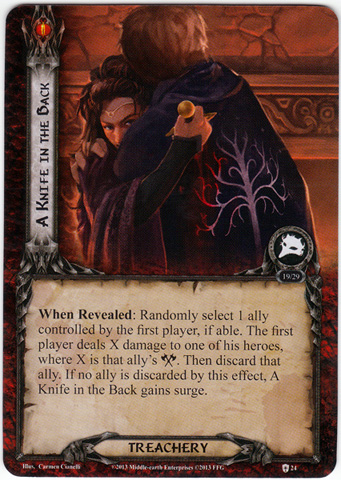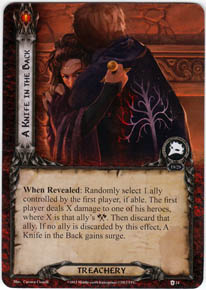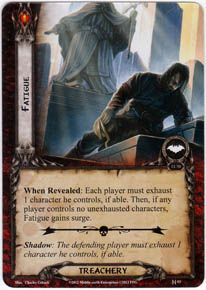His text is the next one:
Response: After Ered Nimrais Prospector enters play, discard the top 3 cards of your deck. Then, choose and shuffle 1 card from your discard pile back into your deck.
A little question: if you dont have cards in your deck, can you anyway choose 1 card from you discard pile and put into your deck?





